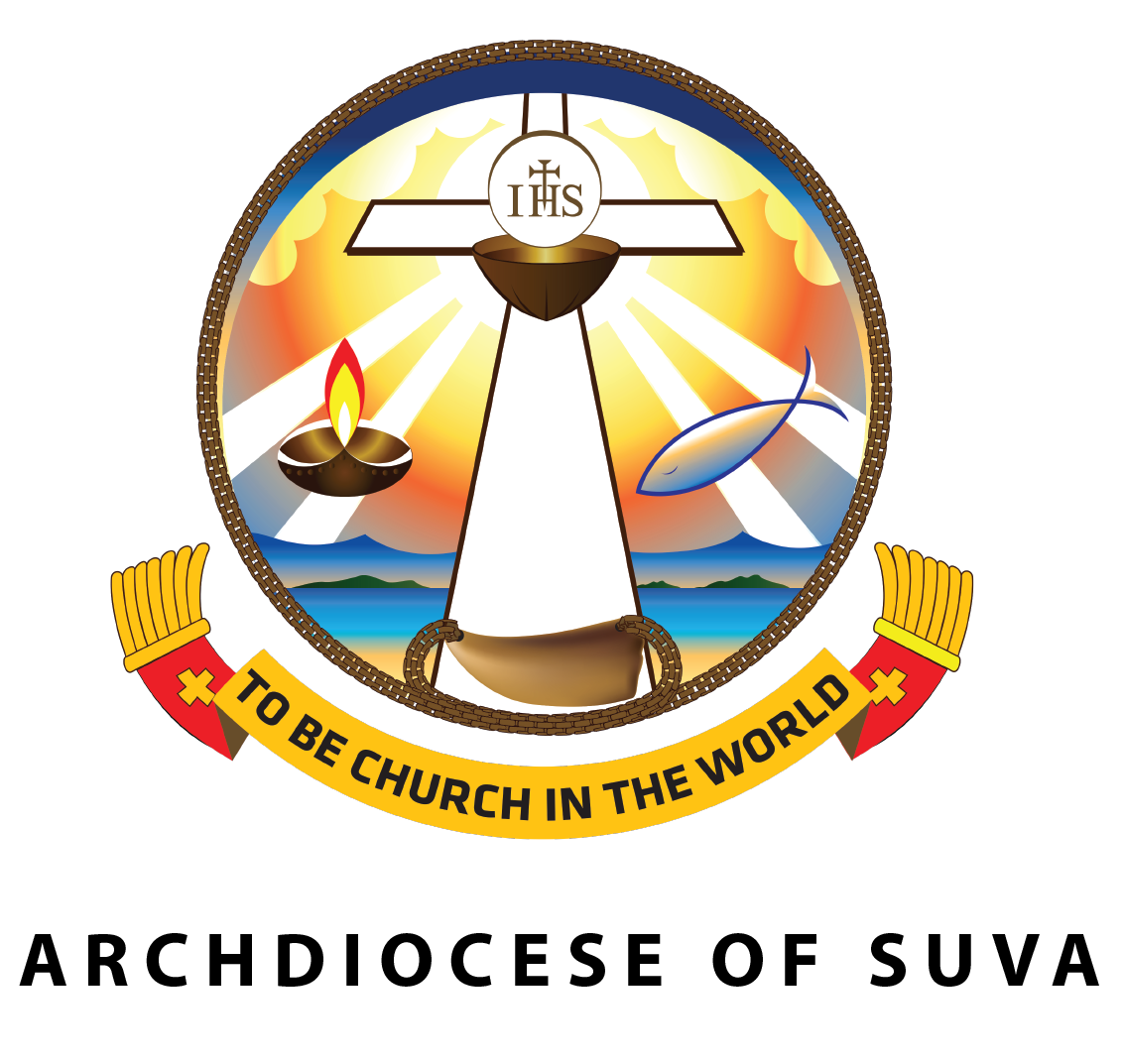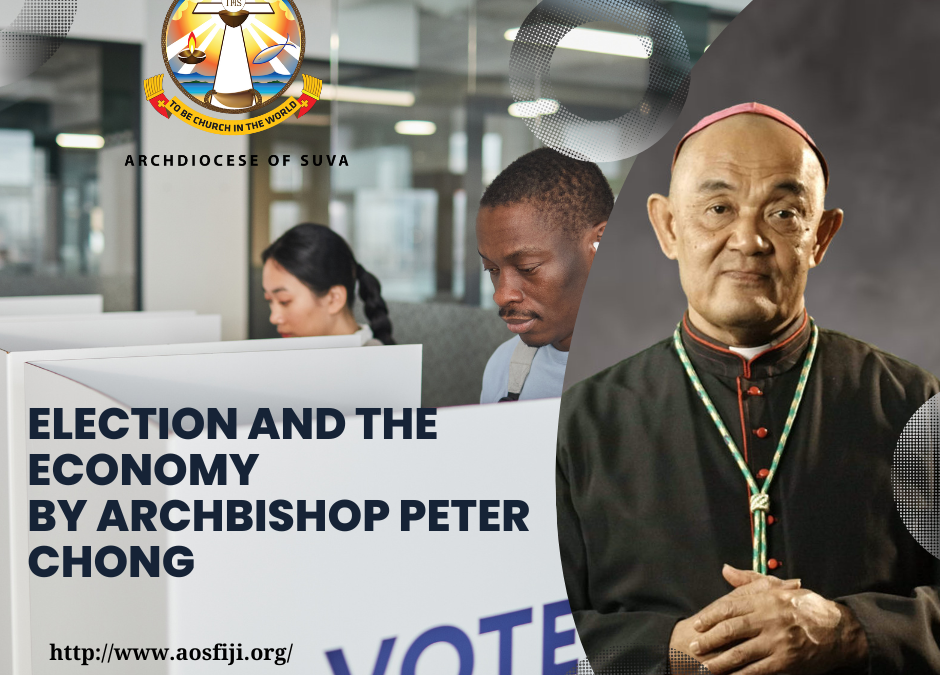ELECTION AND THE ECONOMY By Archbishop Peter Chong
The Economic System
Politicians have to make economic decisions in order to serve peoples’ basic needs, provide jobs, put food on the table, educate children, etc. Information of Fiji’s economy reveal that today tourism, foreign remittance and foreign and local loans provide the main sources of the nation’s income. We are a foreign debt and foreign remittance economy.
Foreign Debt
Developing nations with a weak economy borrow to boost their economy and better serve their people. For some reason, they fail to pay their loans. When developing countries can not pay their debt the loaning banks (eg. World Bank, IMF, ADB) instruct them to carry out a ‘structural adjustment program’ (SAP) in order to pay their loan.
The Fijian Government debt was forecasted to reach $9.1billion by the end of July 2022, Domestic debt was forecast at $5.8billion and external debt was forecast at $3.3 billion. “Our debt is slightly over 85 per cent of GDP and in the 2021-2022 fiscal year.
GDP Defined: GDP measures the monetary value of goods and services produced within a country's borders in a given time period, usually a quarter or a year.
According the Nilesh Gounder, University of the South Pacific senior economics lecturer, 32 per cent of all the revenue the Government collected actually went into debt servicing. So the remainder is then available for spending in public services and infrastructure. If the loaning banks apply the Structural Adjustment Program to Fiji, that means the Fiji Government will have to adjust its economy to pay its debt even at the expanse of alleviating poverty and national development. One of the common SAPs exercises is to reduce government spending by privatising essential services that the government should provide, e.g. hospitals. Fiji will spend most of its money paying foreign debt and hence no money to develop the nation and its peoples. This raises a major ethical question – who benefits from the ’structural adjustment plan’? What are the alternatives or options for moving beyond foreign debt. Here I will draw from the Catholic Church’s recommendations to some African countries like Zambia and Tanzania.
Debt Cancellation using the biblical meaning of the Jubilee
The government must monitor good governance, accountability, transparency.
Greater consultation between government and civil society on national budget preparation. It is our recommendation that government legalizes a participatory and consultative process that would be geared towards promoting accountability and efficiency. Consultations should be done both at district and provincial level. (Justice and Peace Zambia)
Ministry of Finance should closely budget controls.
Review Government ministers’ expenditure, travel, allowances etc
We recommend that government avails accurate and timely information to the stakeholders for the sake of transparency and accountability.
St Pope John Paul II stated; “Building a globalisation without marginalisation, a globalisation with solidarity. Economy that serves the human person and creation.”
What is urgently required is for an ethical mandate and framework so that human rights standards can govern globalization rather than the present situation where they are subservient and hence often forgotten.
Education of civil society in promoting a just economic order, at global, national and local levels. This involves popular participation in good governance.
Call for international solidarity: globalize solidarity from below towards integral and sustainable human development.
(Sources: Adjusting in Africa, For whose benefit, Peter Henriot; Catholic Commission for Justice and Peace, Zambia, The Significance of Subsidiarity and Solidarity on Justice to the “Poor” Challenging Structural Adjustment Policies and Strategies in Tanzania)
Foreign Remittance
We have become a foreign remittance nation. This means that many FijiansA are leaving Fiji to get better income overseas. In my recent trip to Western Samoa and American Samoa I noticed the number of Fijians working in our neighbouring islands. Recently Fiji government put extra effort in seasonal workers program. While Fijians abroad support the Fijian economy, we lose a lot of educated and skilled Fijians (brain-drain). Families and the government spend a lot of money on education and then some other country benefits. Furthermore, seasonal workers and people leaving Fiji puts a lot of pressure on family members who are left behind. Marriages and families become very vulnerable.
Fiji’s reliance on tourism and foreign remittance also reveal that Fiji is not investing on local industries like agriculture and the ocean. Fiji’s tropical climate is good for most crops. We hardly hear investments on yaqona, dalo and turmeric farming. Marijuana is a social problem. Can we turn marijuana farming into a positive industry? Can we research on how marijuana can be commercialised for a pharmaceutical market?
Catholic Social Teaching on the Economy
The Catholic Social Teaching states:
The economy exists to serve the human person, not the person for the economy.
Economic choices and institutions must be judged by how they protect or undermine the life and dignity of the human person, support the family and serve the common good.
A fundamental moral measure of any economy is how the poor and vulnerable are faring.
Participation
Each person has a right and duty to participate in the full range of activities and institutions of social, economic and political life.
A good government allows people to participate through democratic processes to make decisions – without force and domination on the economy.
Government as the privileged agent of the common good.
Catholic Social Teaching recognizes that human rights must be placed in the context of solidarity and social responsibility. Human rights and social responsibility go hand in hand.
We must humanize or civilize globalisation.



